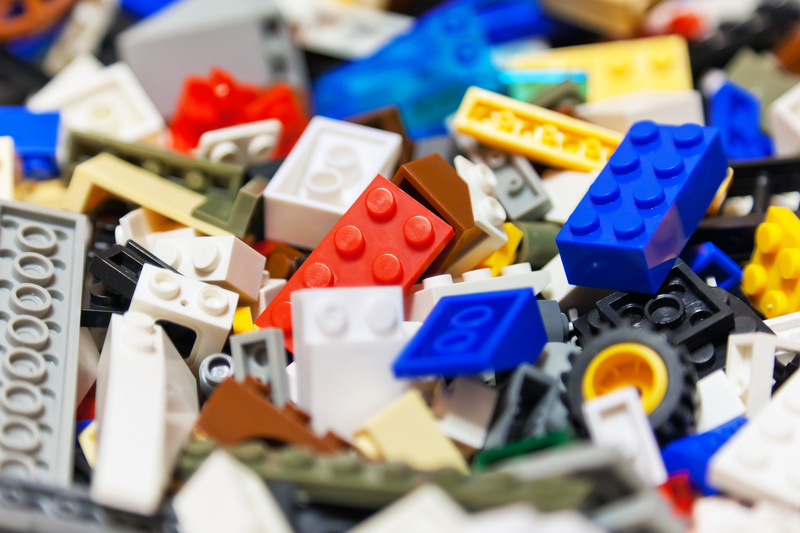Join the Zero Waste Movement by Recycling Pots and Pans
Are you passionate about sustainability and keen to reduce your environmental footprint? One surprisingly impactful way to contribute to a greener planet is by responsibly recycling your old cookware. Pots and pans are kitchen essentials, but when they become damaged, rusted, or obsolete, many people simply toss them in the trash--contributing to overflowing landfills. In this comprehensive guide, you will discover how to recycle cookware, why it matters, and how you can become an advocate for the zero waste movement.
Understanding the Zero Waste Movement
The zero waste movement is a global initiative focused on eliminating waste by redesigning product lifecycles and encouraging reuse, repair, and recycling. At its core, the movement strives to send as little waste as possible to landfills or incinerators. This approach saves resources, reduces pollution, and promotes a circular economy where materials are kept in use for as long as possible.
- Refuse: Say no to products that create unnecessary waste.
- Reduce: Limit consumption and prioritize durability.
- Reuse: Extend the lifespan of items through creative repurposing.
- Recycle: Process materials so they can be made into new items.
- Rot: Compost organic waste if possible.
Household cookware often goes unnoticed in zero waste discussions, but it represents a significant opportunity for change. By recycling old pots and pans, you can help minimize resource depletion and environmental harm.

Why Should You Recycle Old Pots and Pans?
1. Reduce Landfill Waste
Millions of pots and pans are discarded each year, taking up valuable space in landfills. These items are typically made from non-biodegradable metals like stainless steel, aluminum, and copper. Leaving them to rot in landfills means they'll persist for centuries.
2. Preserve Natural Resources
Mining and processing metal ores are energy-intensive activities that scar landscapes and pollute water supplies. By recycling cookware, you reduce the demand for new raw materials and help conserve finite resources.
3. Minimize Environmental Pollution
Irresponsible disposal of cookware can result in toxins and heavy metals leaching into the soil and waterways. Recycling safely diverts these hazardous materials from the environment.
4. Support the Circular Economy
When pots and pans are recycled, their metals are melted down and used in the production of new products--potentially even new cookware. This closes the loop and supports a sustainable, zero waste lifestyle.
How to Recycle Pots and Pans: Step-by-Step Guide
1. Assess the Condition: Can You Reuse or Repurpose?
Before recycling, take a moment to evaluate whether your pots and pans are still usable. If they are, consider donating them to local shelters, charities, or thrift stores. Alternatively, get creative and repurpose cookware around your home:
- Plant pots and garden containers
- Storage bins for garage or craft areas
- Decorative wall art or chalkboards
2. Research Local Recycling Programs
Metal recycling is widely available, but not all municipal recycling programs accept cookware. Check with your local waste management provider, recycling center, or scrap yard. Ask specifically if they accept small household metal items such as stainless steel pans or cast iron skillets.
3. Prepare Your Cookware for Recycling
- Remove any non-metal components such as plastic handles or glass lids. Most recyclers require pure metal items.
- Clean the items to remove food residue, grease, and oil.
- Check for any recycling symbols or manufacturer guidelines regarding recycling.
For cookware with nonstick coatings, find out if the recycling facility can handle Teflon or PTFE. Otherwise, you may need to find a specialized recycler.
4. Drop Off or Arrange Pick Up
Take your prepared pots and pans to the appropriate recycling facility or scrap dealer. Some locations may offer curbside pickup or scheduled collection events for metal household goods. If you're recycling specialty materials (like copper or aluminum cookware), inquire about possible compensation--scrap value could offset disposal costs.
Alternative Ways to Dispose of Old Pots and Pans Sustainably
Besides recycling, there are other eco-friendly disposal options for unwanted cookware:
- Upcycle for Art or Crafts: Creative minds can transform old cookware into sculptures, jewelry, planters, or clocks.
- Donate to Schools or Community Centers: Some educational facilities use old pans for art projects or science experiments.
- Sell or Gift: If your pots or pans are still functional, list them on online platforms like Freecycle, Craigslist, Facebook Marketplace, or Nextdoor.
These methods not only keep cookware out of landfills but extend the utility of each piece for years to come.
Common Types of Cookware and Their Recycling Options
Not all cookware is created the same, and recycling solutions may vary based on material:
Stainless Steel Pots and Pans
- Highly recyclable and valuable for scrap yards.
- Remove plastic, silicone, or wooden parts before recycling.
- Look for bins marked "ferrous metals."
Aluminum Cookware
- Lightweight and easily recyclable.
- Check if your municipal recycling accepts aluminum beyond cans.
- Some nonstick coatings can complicate recycling--verify with the facility first.
Cast Iron Pans
- Very durable and valuable at scrap yards.
- Usually accepted as is, but cleaning is appreciated.
- Restoration is also possible; consider seasoning and reusing.
Copper Cookware
- Check if your recycling center accepts copper, which often yields higher scrap value.
- Remove any non-copper attachments for pure recycling.
Nonstick/Coated Pans
- Can be tricky to recycle due to the coating.
- If the nonstick surface is severely worn, recycling options may be limited.
- Contact specialized recyclers for guidance.
Frequently Asked Questions About Recycling Pots and Pans
Can I throw cookware in the curbside recycling bin?
Usually, no. Standard curbside recycling programs are designed for cans, bottles, and certain plastics. Cookware should be taken to a scrap metal recycler or special collection event.
Are nonstick pans recyclable?
Some nonstick-coated pans are accepted at certain facilities--check with the recycler. In general, remove any plastic bits, and be mindful of potential PTFE (Teflon) complications.
What if the pans are rusted or broken?
No problem! Metal recyclers accept cookware in virtually any condition, as it will be melted and refined during the recycling process.
Can handles and lids be recycled?
Metal handles and lids can typically be recycled with the pots and pans. However, glass lids should be recycled separately according to your local rules, and plastic handles should be removed and discarded if not recyclable.
The Impact of Recycling Pots and Pans on the Environment
Every piece of cookware that gets recycled makes a significant difference. Here's why:
- Energy Savings: Recycling aluminum saves up to 95% of the energy required to produce it from new ore.
- Reduced Carbon Emissions: Processing recycled metals emits far fewer greenhouse gases.
- Preserves Landfill Space: Diverting metal waste extends the lifespan of disposal sites.
When you recycle your pots and pans, you're not just clearing space in your cabinets--you're actively supporting a healthier planet for future generations.
Tips for Buying Zero Waste Cookware
If you want to minimize waste long term, shop smart for new cookware:
- Choose durable materials such as cast iron, stainless steel, or copper.
- Avoid fragile or coated items with a short lifespan.
- Purchase from brands with take-back or recycling programs.
- Repair and restore before replacing whenever possible.
- Care for your pots and pans to extend their lives--clean properly and avoid overheating.
By making eco-conscious buying decisions, you minimize future waste and inspire others in your community to adopt greener habits as part of the zero waste movement.

Become a Zero Waste Kitchen Advocate
Taking steps to recycle, repurpose, and responsibly dispose of your old pots and pans sets a proactive example. You can encourage others to join the zero waste movement by:
- Hosting community cookware recycling drives
- Sharing your experiences on social media
- Educating friends and family about sustainable kitchen tips
- Collaborating with schools or nonprofits for donation or upcycling events
Every small change counts, and collective action leads to transformative results for the planet.
Conclusion: Start Recycling Your Pots and Pans Today
The journey to zero waste doesn't have to be difficult. By recycling, reusing, and responsibly disposing of your old cookware, you're making a tangible, positive impact on the environment. Whether you take your cast iron skillet to a scrap yard, donate extra pans to a neighbor, or transform a battered pot into a quirky planter, you're helping make the world a little greener--one kitchen item at a time.
Join the zero waste movement today by taking that first step in recycling your pots and pans! Share this knowledge, inspire your community, and keep the cycle of sustainability spinning for generations to come.